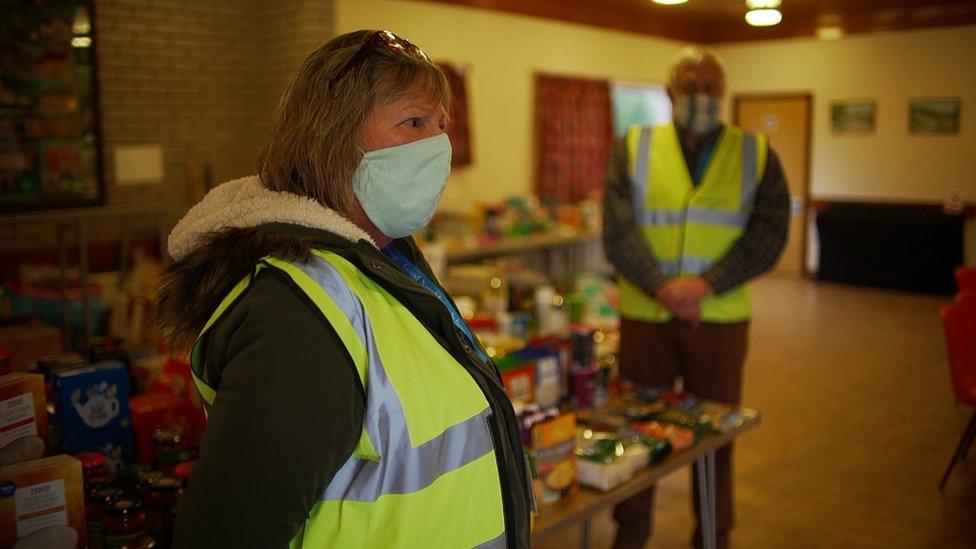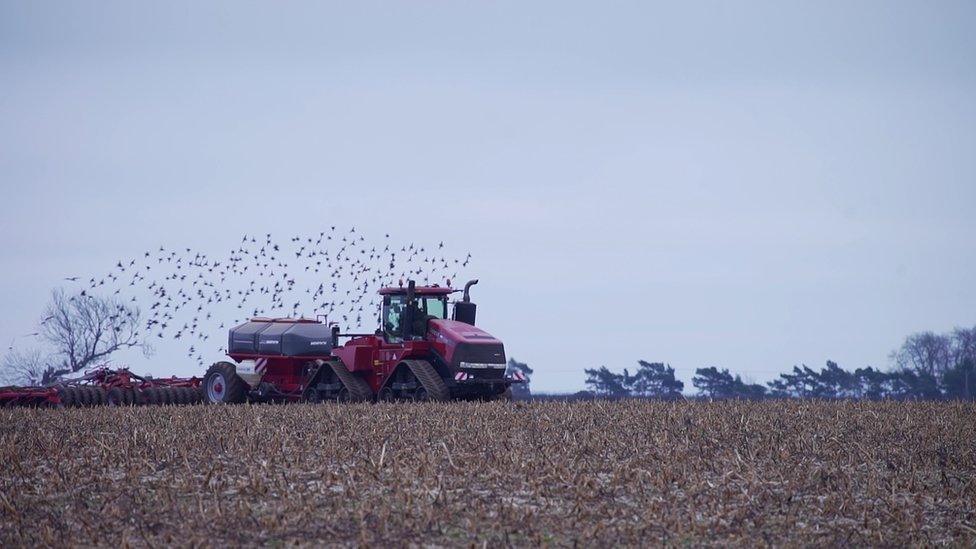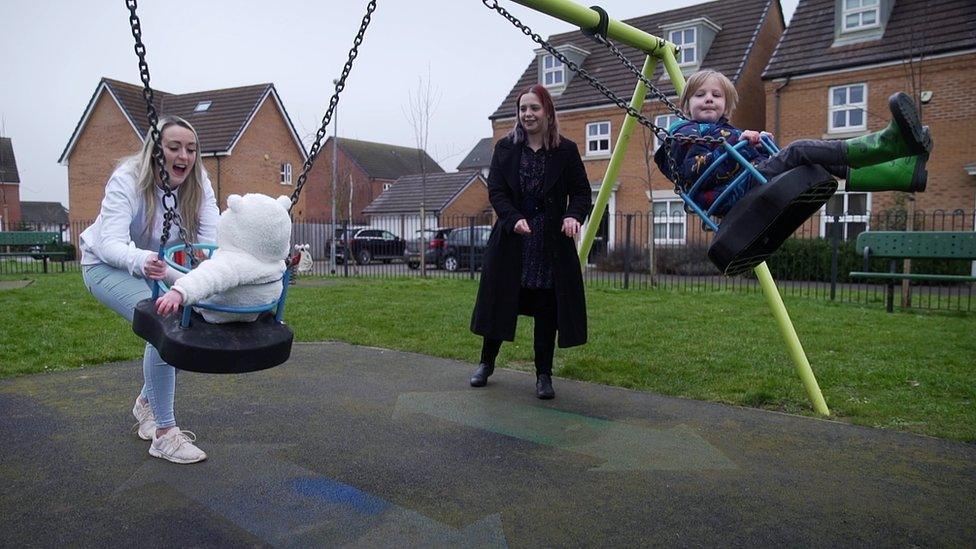Should local council power be 'turbo-charged'?
- Published

Volunteers in Branston have been helping the community throughout the pandemic
The trestle tables in Branston village's church hall creak under the weight of donated food.
Tins of spaghetti, boxes of cereal and jars of coffee are all lined up neatly, ready to be boxed and delivered to those in need.
It's the work of the Lincolnshire village's volunteers, organised by Andy Marchant of the parish council, who called on the community to step up and support families struggling during the early stages of the pandemic last year.
"I was absolutely astounded with the response from the community itself," he said.
"And it's not just the uptake, the 100 volunteers I had within a couple of weeks. It was also all the surrounding organisations, all the big food chains."
The group has responded to more than 2,000 requests for help since last March, from food parcels to prescriptions being delivered, or just general support for those feeling lonely or finding life tough.


Meeting local need
Branston volunteer Judy Dickin said it was crucial that they could respond quickly to the local need, in contrast to larger-scale support schemes which can take time.
"To me it's speed," she said. "It's a lack of red tape. Universal Credit, for example, it takes time. But tummies need to be fed and you haven't sometimes got that time.
"I think that is the superb thing about the local community meeting the local need."

It's not just volunteers who've responded to demand at local level.
A report by the All-Party Parliamentary Group on devolution says the pandemic has proven how councils in England can deliver for their communities.
It says: "Local government's response to Covid-19 has been more flexible, effective and responsive than aspects of the central government response, in part because health inequalities are associated with a wide range of social and economic factors that are often only visible to leaders rooted in the local community."
The report argues that devolution - the transfer of power from central to local government - should be "turbo-charged", saying it's crucial to help communities recover from the pandemic and essential if the government is to deliver on its promise of "levelling up" across the country.
Not far from the Lincolnshire town of Market Rasen, local businesses owner Dave Carter thinks councils have a key role to play in rebuilding local economies.

Rural businesses have been seeking help from their local councils
He runs a consultancy firm, specialising in sports clients. He hasn't qualified for the significant package of government support that's been on offer during the pandemic.
Instead he's recently applied to a scheme run by Lincolnshire County Council, which has set aside £12m to help local businesses.
"It's an excellent thing," he said. "We really need to support our fledgling businesses and our young businesses."
His concern is that rural economies get overlooked when it comes to investment and businesses support in the future.
"I think that we need a system in place where there's a voice for the rural economies to talk to the government," he added.
"Boris said that he's going to level-up the north. What about levelling up rural economies as well?"
Government funds 'to tackle inequalities'
The government has ploughed billions of pounds into supporting businesses and families during the pandemic, and points to funds set aside to help tackle regional inequalities as the country recovers.
A spokesman for Ministry of Housing, Communities and Local Government said: "Last week's Budget clearly demonstrates how the government is levelling up all areas of the country by devolving money, resources and control away from Westminster.
"Our £3.6bn Towns Fund, £4.8bn Levelling Up Fund, £220m Community Renewal Fund and eight new freeports will support and regenerate communities across the country, including rural areas."
A long-awaited white paper setting out ministers' thinking on devolution was delayed last year, though the government says it will be published "in due course".
There are questions about whether or not existing governance systems across England need reform alongside any transfer of powers.
The current system is multi-layered and inconsistent, with different arrangements in place in different areas.
Where devolution has taken place, it's often been accompanied by some structural reorganisation, such as councils teaming up to form combined authorities and the creation of elected mayors, though the report from the APPG says that shouldn't be a requirement.
Separately, there's active discussion in some counties, including Lincolnshire, about whether to scrap the current system which sees county and district councils delivering different services, in favour of single authorities which do everything with supporters saying it would streamline services and save money.

Danielle Allen and Victoria Fallow-Norton want power in the hands of those who know their area
In Stamford, a town on the edge of Lincolnshire, mums Danielle Allen and Victoria Fallow-Norton say having people who understand local areas in charge of services and budgets is key.
Danielle said: "I think the local areas, if they have more control over their funds, they're going to be able to meet needs better."
Victoria added: "I think it depends where the council is, because if it was really localised and it was just to do with your town then they would know…the schools and the families and the people that live in the area.
"My worry with giving the powers to a bigger council area is that they would still be as remote. I mean they might as well be Westminster, as far as we're concerned, because they're still not here they still don't know our town."
There's no consensus on what's the right system; and for some the focus should be a sustainable funding model which would give councils more spending power.
More broadly, while for some the pandemic's furthered the devolution cause, for others it's shown the inconsistencies in local government and the need for central control.
Either way, it's posed key questions about who knows what's best for local communities - which could prove crucial as the country recovers.